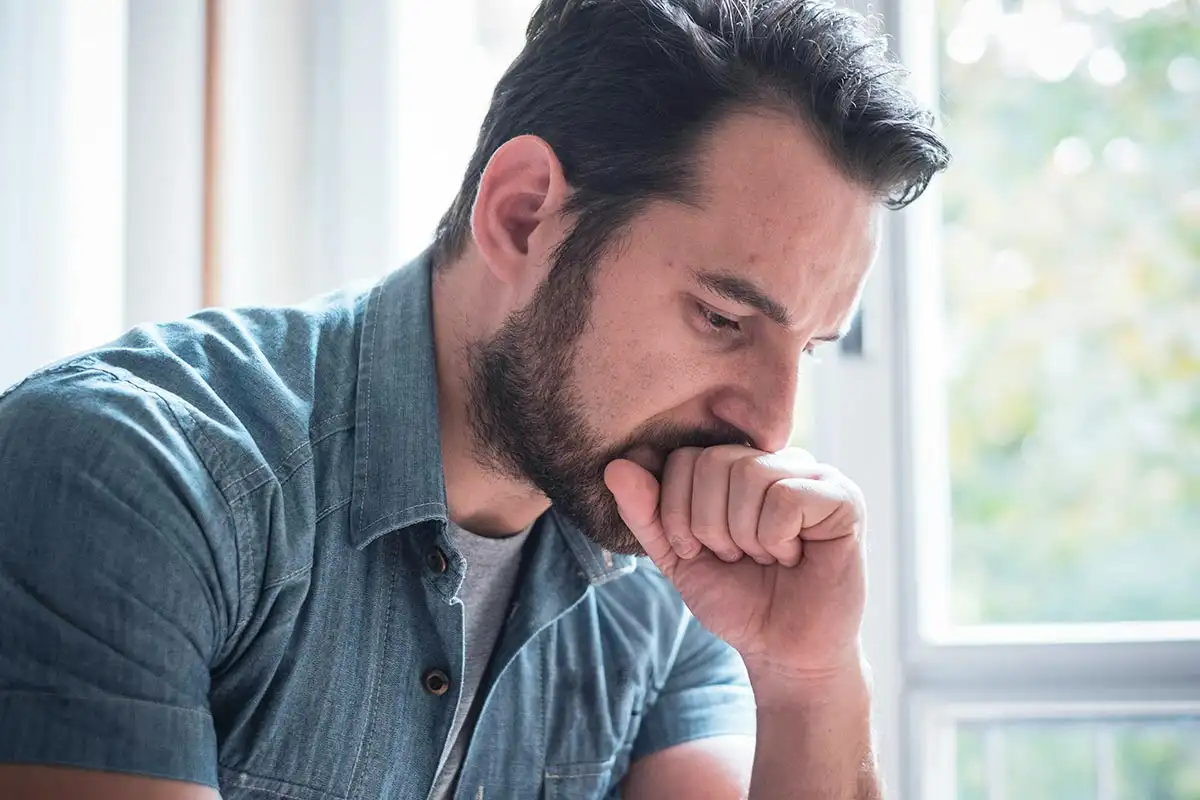
The Importance of Aftercare Following a California Virtual IOP
Medically Reviewed by:

Dr. Marco M. Zahedi
Medical Director, Compassion Recovery Center

Dr. Michael Majeski
Licensed Psychologist (LP), Compassion Recovery Center
Table of Contents
Introduction
The journey to recovery from drug or alcohol addiction is a profound and courageous one. For many, the first major step involves intensive treatment, and in today’s digitally connected world, these crucial services are more accessible than ever. Intensive Outpatient Programs (IOPs) play a pivotal role in this journey, offering a structured yet flexible approach to addiction recovery. An IOP provides a comprehensive level of care that is more concentrated than standard outpatient therapy but less restrictive than residential inpatient treatment. This allows individuals to receive substantial support while continuing to manage their daily responsibilities like work, school, or family care. Participants typically attend therapy sessions for several hours a day, multiple days a week, engaging in individual counseling, group therapy, and educational workshops designed to equip them with the tools for sobriety.
In California, the landscape of addiction treatment has been transformed by the rise of virtual IOPs. These innovative programs leverage telehealth technology to deliver high-quality care directly to individuals in their homes, or wherever they have a secure internet connection. This model is particularly beneficial for residents of areas like Orange County, where Compassion Recovery Center specializes in providing Virtual IOP Program services. The accessibility of a remote drug rehab Orange County option means that geographical barriers, transportation issues, or even social stigma are significantly reduced. People can receive help without uprooting their lives, maintaining a sense of normalcy and connection to their existing support systems. This flexibility is paramount for those who cannot step away from their commitments but are deeply in need of structured addiction treatment.
However, completing an IOP, whether virtual or in-person, is not the end of the recovery journey; rather, it marks the transition to a new phase. This is where the critical importance of aftercare comes into focus. Aftercare, also known as continuing care, refers to the ongoing support and services an individual receives after completing a primary treatment program. It is designed to reinforce the skills learned during IOP, provide continued emotional and psychological support, and help individuals navigate the challenges of maintaining long-term sobriety. For those completing a virtual IOP in California, a well-structured aftercare plan is not just beneficial—it’s essential for sustaining the progress made. It acts as a safety net, helping to prevent relapse and solidify the foundations of a new, sober life. The transition from the intensive support of an IOP to independent living can be daunting, and aftercare provides the bridge that makes this transition smoother and more successful. At Compassion Recovery Center, we understand that lasting recovery is an ongoing process, and our commitment extends to helping individuals develop robust aftercare strategies. If you’re ready to learn more about how our programs can support your path to sobriety, reach out today for a confidential conversation.

Understanding Aftercare
Aftercare, in the context of addiction treatment, is a comprehensive plan of continued support services that an individual engages in after completing a primary phase of treatment, such as an Intensive Outpatient Program (IOP) or even a Partial Hospitalization Program (PHP). It’s not a one-size-fits-all solution but rather a personalized strategy designed to address the ongoing needs of individuals in recovery. Think of primary treatment as learning to ride a bicycle with training wheels; aftercare is like gradually removing those training wheels while still having someone nearby to offer guidance and support as you gain confidence and balance on your own. The components of aftercare can be diverse and are tailored to the unique circumstances, challenges, and strengths of each person. Common elements include ongoing individual therapy, participation in support groups (like AA, NA, or SMART Recovery), family counseling, medication management (if applicable, such as MAT treatment online), relapse prevention planning, and sometimes sober living arrangements or vocational support. The aim is to provide a seamless continuation of care that helps individuals integrate the coping mechanisms and life skills learned during their initial treatment into their everyday lives.
The goals of aftercare in addiction treatment are multi-faceted and deeply focused on promoting sustainable recovery. Primarily, aftercare aims to help individuals maintain their sobriety by providing a consistent support structure. This involves reinforcing the positive changes made during treatment, helping to manage cravings, and developing healthier lifestyle patterns. Another crucial goal is to prevent relapse. Relapse is a common part of the recovery process for many, but a strong aftercare plan can significantly reduce its likelihood or severity by equipping individuals with the tools to identify and manage triggers effectively. Furthermore, aftercare seeks to improve an individual’s overall quality of life. This includes fostering better mental and emotional health (often through services like mental health treatment), rebuilding damaged relationships, and supporting progress in personal, academic, or professional pursuits. It also encourages the development of a strong, sober support network, which is vital for navigating the inevitable ups and downs of life without resorting to substance use.
The way aftercare supports long-term sobriety and relapse prevention is by providing a continuous safety net and an environment conducive to growth. During intensive treatment, individuals are often in a highly supportive and structured setting. Transitioning back to daily life can present numerous challenges and triggers that weren’t present in the treatment environment. Aftercare helps bridge this gap. Regular therapy sessions, for instance, offer a space to process new challenges, reinforce coping strategies, and adjust the recovery plan as needed. Support groups provide peer understanding and shared experiences, reducing feelings of isolation and offering practical advice from others who are further along in their recovery. Relapse prevention planning, a core component of aftercare, involves identifying personal high-risk situations, developing specific strategies to deal with them, and knowing what to do if a lapse occurs. This proactive approach empowers individuals to take control of their recovery. For those who have undergone treatment for co-occurring disorders, often referred to as dual diagnosis treatment, aftercare ensures that both the substance use disorder and the mental health condition continue to be addressed. Ultimately, aftercare following a virtual IOP in California or any other primary treatment program is about building resilience, fostering self-efficacy, and nurturing a lifestyle where sobriety is not just maintained but becomes a foundation for a fulfilling life. If you’re wondering about your insurance coverage for such essential services, you can easily check insurance coverage through our online portal.
The Role of Aftercare in Virtual IOPs
Virtual Intensive Outpatient Programs (IOPs) have revolutionized addiction treatment, particularly in geographically diverse states like California. They offer numerous benefits, chief among them being accessibility and flexibility. Individuals in remote areas of California, or those in bustling urban centers like Orange County with demanding schedules, can access high-quality drug rehab programs or alcohol rehab programs from the comfort and privacy of their own homes. This eliminates travel time, reduces costs associated with transportation and childcare, and allows participants to continue with work or family responsibilities. The anonymity of a remote IOP can also be a significant advantage, encouraging individuals who might otherwise avoid treatment due to stigma to seek help. However, virtual IOPs also present unique challenges. The lack of a physical, controlled environment means participants require a higher degree of self-motivation and discipline. Potential technological barriers, such as unstable internet connections or lack of private space, can sometimes hinder engagement. Moreover, the physical separation from therapists and peers, while offering convenience, can sometimes lead to feelings of isolation if not actively managed.
This is precisely where aftercare becomes indispensable in complementing virtual IOPs to enhance recovery outcomes. While a virtual IOP California program provides intensive, structured support for a defined period, aftercare extends this support into the crucial phase of independent sober living. It addresses the challenges inherent in the virtual model by providing continued connection and accountability. For instance, ongoing telehealth therapy sessions as part of an aftercare plan can help individuals process the real-world application of skills learned in the IOP, troubleshoot challenges as they arise in their home environment, and maintain a strong therapeutic alliance. Virtual support groups, a common component of aftercare, can mitigate feelings of isolation by connecting individuals with a community of peers who understand the nuances of recovery in a remote setting. Aftercare following a virtual IOP acts as a consistent, guiding presence, reinforcing the lessons of the program and adapting them to the evolving landscape of an individual’s life post-treatment. It helps solidify the gains made during the intensive phase and builds resilience against the stressors and triggers of everyday life that can threaten sobriety.
The importance of continuity of care in virtual settings cannot be overstated, and aftercare is the key to achieving this. Addiction recovery is not a linear process with a fixed endpoint; it’s an ongoing journey that requires sustained effort and support. When an individual completes a virtual IOP, the structure and intensity of daily or near-daily interactions with therapists and groups lessen. Without a robust aftercare plan, this transition can feel abrupt and overwhelming, potentially increasing the risk of relapse. Effective aftercare ensures that the therapeutic momentum is maintained. By leveraging the same telehealth platforms used for the virtual IOP, aftercare services like online CBT therapy or check-ins for MAT treatment online can be seamlessly integrated. This continuity allows individuals to maintain relationships with familiar providers or easily transition to new ones who understand their history and progress. Compassion Recovery Center emphasizes this seamless transition, ensuring that individuals moving from our virtual IOP program have a clear and supportive path forward. This commitment to ongoing care is fundamental to helping our clients build lasting recovery. If you’re exploring explore treatment options, consider the entire continuum of care, including robust aftercare planning, which is a hallmark of effective telehealth addiction treatment.

Components of Effective Aftercare
An effective aftercare plan is not a generic checklist but a dynamic, personalized roadmap designed to support an individual’s unique journey in recovery after completing a primary treatment program like a virtual IOP. Several key elements typically form the foundation of a successful aftercare strategy, working in concert to reinforce sobriety and promote overall well-being. One of the cornerstones is ongoing therapy. This usually involves regular individual counseling sessions with a therapist, which can continue to explore underlying issues contributing to addiction, refine coping strategies, and address new challenges that arise in daily life. Group therapy also plays a vital role, offering peer support, shared experiences, and a sense of community that combats isolation. These groups can be general recovery groups or specialized ones focusing on topics like trauma, co-occurring disorders, or specific life skills. Support groups, such as Alcoholics Anonymous (AA), Narcotics Anonymous (NA), SMART Recovery, or other secular organizations, are another critical component. These peer-led groups provide a readily available network of support, accountability, and fellowship, often accessible multiple times a day, both in-person and virtually. They offer a space where individuals can share their struggles and successes with others who truly understand. Lifestyle changes are also integral to effective aftercare. This involves establishing and maintaining healthy routines, including regular exercise, nutritious eating, adequate sleep, and engaging in sober hobbies and activities. Stress management techniques, such as mindfulness or meditation, learned during treatment, are continually practiced and integrated. Relapse prevention planning is a proactive element that involves identifying personal triggers, developing specific coping mechanisms for high-risk situations, and creating a clear plan of action if cravings intensify or a lapse occurs. This plan is often reviewed and updated during ongoing therapy sessions. For some individuals, Medication-Assisted Treatment (MAT) may be a part of their aftercare, particularly for opioid or alcohol use disorders. This involves the continued use of prescribed medications, under medical supervision, to reduce cravings and prevent relapse, often managed through MAT treatment online for convenience. Family involvement, through family therapy or educational programs like virtual couples counseling rehab, can also be crucial, helping to heal relationships and build a supportive home environment.
The role of telehealth in providing ongoing support and counseling within aftercare has become increasingly prominent and invaluable. Telehealth platforms allow individuals to connect with therapists, psychiatrists, and support groups remotely, overcoming geographical barriers, transportation challenges, and scheduling conflicts. This is particularly beneficial for those who have completed a virtual IOP in California, as it allows for a seamless continuation of care using familiar technology. Services like online CBT therapy can be delivered effectively via video conferencing, providing consistent, evidence-based support. Remote check-ins for medication management, including MAT, also ensure adherence and allow for timely adjustments. Virtual support groups can connect individuals from diverse locations, broadening their support network. The convenience of telehealth can improve engagement and adherence to aftercare plans, as individuals can access support from the privacy and comfort of their homes. This accessibility is vital for maintaining momentum in recovery, especially during vulnerable periods. Compassion Recovery Center leverages telehealth extensively in its aftercare planning, recognizing its power to make sustained support a practical reality for more people. To understand how these services can fit into your life, you might want to start your free assessment with us.
Perhaps the most critical aspect of effective aftercare is its personalization. Addiction and recovery are deeply personal experiences, influenced by a myriad of factors including the type of substance used, duration of use, co-occurring mental health conditions (requiring dual diagnosis treatment), family history, social environment, and individual strengths and challenges. Therefore, a one-size-fits-all approach to aftercare is unlikely to be successful. A personalized aftercare plan is developed collaboratively between the individual and their treatment team, taking into account their specific needs, goals, preferences, and circumstances. This might mean varying frequencies of therapy, participation in specific types of support groups, tailored relapse prevention strategies, or connections to particular community resources. For example, someone with a strong family support system might focus more on individual therapy and vocational goals, while another individual might benefit more from sober living arrangements and intensive peer support. The plan should also be flexible and adaptable, evolving as the individual progresses in their recovery. Regular reviews and adjustments ensure that the aftercare plan remains relevant and continues to meet the person’s changing needs. This client-centered approach empowers individuals by giving them an active role in their ongoing recovery, fostering a sense of ownership and commitment to their sobriety. Compassion Recovery Center is dedicated to crafting these individualized aftercare plans, ensuring that each person leaving our Intensive Outpatient Program (IOP) has the specific support they need to thrive.
Benefits of Aftercare Following a Virtual IOP
Completing a virtual IOP is a significant achievement, marking a pivotal moment in an individual’s recovery journey. However, the period immediately following such intensive treatment is often when individuals are most vulnerable. Aftercare services step in to bridge this gap, offering a wealth of psychological and emotional benefits that are crucial for sustained sobriety and overall well-being. One of the primary psychological benefits is the continued reinforcement of coping mechanisms and healthy thought patterns learned during the IOP. Regular therapy sessions, whether individual or group, provide a space to process emotions, manage stress, and address anxieties that can trigger relapse. This ongoing professional guidance helps individuals build emotional resilience, improve self-awareness, and develop a stronger sense of self-efficacy. Knowing that there’s a consistent, reliable source of support can significantly reduce feelings of overwhelm as individuals navigate the complexities of daily life without substances. Furthermore, aftercare helps in continuously addressing any co-occurring mental health conditions, such as depression or anxiety, which are common among those with substance use disorders. Consistent mental health treatment as part of aftercare can stabilize mood, improve emotional regulation, and enhance the overall quality of life, making it easier to maintain sobriety.
Another profound benefit of aftercare is its role in building and nurturing a supportive community. Addiction often thrives in isolation, and recovery flourishes in connection. After completing a telehealth addiction treatment program like a virtual IOP, individuals might feel a void left by the intensive daily interactions. Aftercare programs, particularly through support groups (e.g., AA, NA, SMART Recovery, alumni groups), facilitate the development of a robust sober support network. These communities offer a sense of belonging, understanding, and shared experience that is incredibly powerful. Connecting with others who have faced similar struggles and are committed to recovery provides encouragement, accountability, and practical advice. This peer support can be a lifeline, especially during challenging times. For those in a virtual rehab California setting, these connections can be forged and maintained through online forums, virtual meetings, and telehealth group therapy sessions, ensuring that geographical distance doesn’t impede the formation of these vital bonds. Compassion Recovery Center often facilitates connections to such groups, understanding that a strong community is a cornerstone of lasting recovery. Family therapy or virtual couples counseling rehab, often part of aftercare, also helps rebuild and strengthen relationships with loved ones, turning the family unit into a source of positive support rather than potential stress or triggers.
Perhaps one of the most critical functions of aftercare is its direct impact on managing triggers and preventing relapse. Triggers are cues—people, places, things, emotions, or situations—that can evoke cravings or thoughts of using substances. While an IOP equips individuals with initial strategies to identify and cope with triggers, aftercare provides the ongoing practice and refinement of these skills in real-world scenarios. Through continued therapy and relapse prevention planning, individuals delve deeper into their personal trigger patterns and develop more sophisticated and personalized coping strategies. This might involve learning advanced stress-management techniques, communication skills to navigate difficult social situations, or problem-solving skills to address life stressors proactively. Aftercare provides a safe space to discuss encounters with triggers, process the experience, and strategize for future occurrences. Regular check-ins with a therapist or support group can help individuals stay vigilant and accountable to their relapse prevention plan. If a lapse does occur, the established aftercare support system ensures that the individual can quickly access help, process the event without excessive shame, and get back on track, preventing a full-blown relapse. This proactive and supportive approach significantly increases the chances of long-term sobriety. If you or a loved one are considering the next steps after an IOP, get help now to discuss how a comprehensive aftercare plan can be tailored to your needs, ensuring you have the best possible support for managing triggers and embracing a sober future.
Integrating Compassion Recovery Center Services
At Compassion Recovery Center, our philosophy is rooted in providing comprehensive, accessible, and empathetic care that extends beyond the initial phase of intensive treatment. We understand that recovery is a continuous journey, and our services are designed to support individuals at every stage, particularly during the critical aftercare period following a virtual IOP. Our approach inherently aligns with the principles of effective aftercare by emphasizing continuity, personalization, and the use of modern telehealth technologies to make support readily available. When an individual participates in our remote IOP, the groundwork for aftercare is laid from the beginning. We work with clients to identify their long-term recovery goals, potential challenges, and the types of ongoing support that will best suit their needs. This proactive planning ensures a smoother transition from the structured environment of the IOP to a more independent, yet still supported, phase of recovery. Our commitment is to provide a seamless continuum of care, ensuring that the skills and insights gained during treatment are reinforced and built upon during aftercare.
Compassion Recovery Center offers a suite of telehealth services that are ideally suited for robust aftercare. Our flagship Virtual IOP Program itself provides the intensive treatment phase, but the support doesn’t end there. We provide access to ongoing online CBT therapy, a highly effective evidence-based approach for managing addiction and co-occurring mental health conditions. Cognitive Behavioral Therapy helps individuals identify and change negative thought patterns and behaviors that contribute to substance use, skills that require continuous practice and refinement in aftercare. For individuals who benefit from Medication-Assisted Treatment, we offer MAT treatment online, allowing for convenient and private consultations with medical professionals to manage prescriptions and monitor progress. This is crucial for maintaining stability, especially for those recovering from opioid or alcohol dependence. Our services are particularly tailored for those seeking remote drug rehab Orange County options, bringing expert care directly to their homes. The ease of accessing these services via telehealth removes many traditional barriers to continued treatment, such as transportation, time constraints, or geographical distance, making it easier for individuals to stay engaged with their recovery plan. You can easily Verify Insurance on our website to see how these services can be covered.
Furthermore, Compassion Recovery Center recognizes the profound impact that relationships and family dynamics have on recovery. Substance use often strains relationships, and healing these connections is a vital part of long-term well-being. This is why we offer virtual couples counseling rehab as part of our comprehensive care. This service can be an invaluable component of an aftercare plan, helping partners improve communication, rebuild trust, and learn how to support each other’s recovery journey effectively. A supportive home environment significantly reduces stress and potential triggers, strengthening the foundation for lasting sobriety. For families in Orange County and across California, accessing specialized couples counseling via telehealth provides unparalleled convenience and privacy. By integrating services like our Orange County IOP, individual online therapy, MAT, and virtual couples counseling, Compassion Recovery Center creates a holistic and adaptive aftercare ecosystem. We strive to empower our clients with the tools, resources, and continuous support they need to not just maintain sobriety, but to build a fulfilling and meaningful life in recovery. We encourage anyone looking to get help for substance abuse to explore how our integrated telehealth model can support their entire recovery journey, from initial treatment through comprehensive aftercare.
Case Studies and Success Stories
To truly understand the impact of robust aftercare following virtual IOP, let’s consider a few hypothetical examples that reflect common scenarios and the positive outcomes achievable with continued support. These stories, while fictional, are inspired by the types of journeys we witness and support at Compassion Recovery Center.
Sarah, the Working Professional in Orange County: Sarah is a 45-year-old marketing executive living in Irvine, Orange County. She successfully completed a virtual IOP for alcohol use disorder while continuing to manage her demanding career. The flexibility of the virtual program was essential for her. Upon completing the IOP, Sarah, with guidance from her Compassion Recovery Center case manager, transitioned into a personalized aftercare plan. This plan included weekly individual online CBT therapy sessions, participation in a virtual women’s recovery support group, and bi-monthly check-ins for her naltrexone prescription via MAT treatment online. Challenge: Six months into aftercare, Sarah faced a major work project that caused significant stress, a known trigger for her. She felt overwhelmed and experienced strong cravings for alcohol. Aftercare in Action: Instead of succumbing, Sarah utilized her relapse prevention plan. She immediately scheduled an emergency telehealth session with her therapist, who helped her process the stress and reinforce coping strategies. She also leaned heavily on her virtual support group, sharing her struggles and receiving encouragement. Outcome: Sarah successfully navigated the stressful period without relapsing. The readily available telehealth support and her established sober network were crucial. She continues to thrive in her career and sobriety, attributing her success to the seamless continuation of care from her virtual IOP into a flexible, supportive aftercare program tailored to her busy life as a professional in Orange County IOP system.
David, Battling Co-occurring Disorders: David, a 28-year-old from a smaller town in California, struggled with opioid addiction and severe anxiety. He found Compassion Recovery Center’s virtual IOP California program accessible when local options were limited. His treatment focused heavily on dual diagnosis treatment. His aftercare plan emphasized continued support for both conditions. Challenge: After IOP, David experienced a resurgence of anxiety symptoms, which historically led him to self-medicate with opioids. He felt isolated in his small town with few local resources. Aftercare in Action: David’s aftercare included bi-weekly online therapy sessions focusing on anxiety management and relapse prevention, continued MAT with buprenorphine managed via telehealth, and daily check-ins with a virtual peer support specialist. He also joined an online support group specifically for individuals with co-occurring disorders. Outcome: The consistent mental health treatment and addiction support provided through telehealth were vital for David. He learned to manage his anxiety using healthy coping skills and maintained his sobriety. The virtual community became his lifeline, reducing feelings of isolation and providing a sense of belonging. David is now an advocate for telehealth addiction treatment, highlighting how it can reach those in underserved areas.
Maria and Carlos, Rebuilding Their Relationship: Maria completed a virtual IOP for prescription drug misuse. Her substance use had severely strained her marriage to Carlos. As part of her aftercare, they both agreed to participate in virtual couples counseling rehab offered by Compassion Recovery Center. Challenge: Trust was a major issue. Carlos struggled to believe Maria would stay sober, and Maria felt constantly scrutinized. Communication was poor, leading to frequent arguments that stressed Maria and triggered cravings. Aftercare in Action: Weekly virtual couples counseling sessions provided a safe space for Maria and Carlos to address their issues with a therapist. They learned healthier communication patterns, strategies for rebuilding trust, and how Carlos could support Maria’s recovery without becoming codependent. Maria also continued with her individual online therapy and attended virtual NA meetings. Outcome: The couples counseling significantly improved their relationship. Carlos became a strong pillar of support in Maria’s recovery, and Maria felt understood and less stressed at home. Their strengthened relationship became a protective factor against relapse. They learned that recovery is a family affair and that healing together is possible, even through virtual means.
These examples illustrate that common challenges during aftercare—such as stress, managing co-occurring disorders, relationship difficulties, and feelings of isolation—can be effectively addressed with a well-structured, personalized, and accessible aftercare plan. The key is the continuity of support, leveraging telehealth for convenience and connection, and tailoring services to individual needs. Strategies like proactive relapse prevention planning, consistent therapy, peer support, and, when appropriate, MAT and family counseling, are all vital components. If these stories resonate with you, or you face similar challenges, we encourage you to contact us for a confidential assessment to explore how Compassion Recovery Center can support your unique journey.
Conclusion
The journey from active addiction to sustained sobriety is a transformative process, one that requires courage, commitment, and ongoing support. While completing an Intensive Outpatient Program (IOP), especially a flexible and accessible virtual IOP in California, is a monumental step, it’s crucial to recognize that this is not the final destination. The period following intensive treatment is a vulnerable yet vital phase where the skills learned are put to the test in the real world. This is where aftercare proves its indispensable worth. Aftercare is not merely an add-on or an afterthought; it is an integral and essential component of comprehensive addiction treatment and long-term recovery. It provides the necessary scaffolding to support individuals as they transition from the structured environment of an IOP to greater independence, helping to solidify new, healthy habits and prevent a return to old patterns.
We strongly encourage anyone who has completed or is nearing completion of an IOP, or their loved ones, to consider aftercare as a non-negotiable part of their recovery journey. The continued therapeutic support, peer connections, relapse prevention strategies, and personalized guidance offered through aftercare significantly increase the likelihood of maintaining sobriety and improving overall quality of life. Whether it involves ongoing online CBT therapy, participation in virtual support groups, MAT treatment online, or virtual couples counseling rehab, embracing aftercare is an investment in your future health and happiness. It acknowledges that recovery is an ongoing process that benefits from sustained, compassionate support. For residents of Orange County and throughout California, the availability of robust telehealth aftercare options means that this vital support is more accessible than ever before.
If you or a loved one are navigating the path of recovery and seeking support to maintain sobriety after a virtual IOP, Compassion Recovery Center is here to help. Our dedicated team specializes in providing comprehensive telehealth addiction treatment, including tailored aftercare planning designed to meet your unique needs. We understand the challenges and triumphs of the recovery journey and are committed to offering the compassionate, evidence-based care you deserve. Don’t leave your long-term success to chance. Reach out today to learn more about our remote IOP and how we can develop a comprehensive aftercare plan to support your journey to lasting sobriety. You can also easily verify your insurance online or take the first step by completing a start your free assessment. Your path to a brighter, sober future continues with strong support, and we are here to walk that path with you.
Why is aftercare important in addiction treatment?
What is IOP aftercare?
What comes after the IOP program?
Is virtual IOP effective?
What does intensive outpatient treatment look like?
Why are aftercare services important?
What kind of support can I expect after completing a virtual IOP?
Can you work remotely from rehab?
Struggling to balance life while needing support? Get expert virtual care and start your recovery journey, anytime, anywhere.
We’re learning more each day.
Researchers and doctors are making exciting progress in understanding mental health and addiction—bringing hope to millions.
Your genes don’t define you.
Genetics can play a part, but they don’t decide your future. Mental health is shaped by many factors, and healing is always possible.
There's no one-size-fits-all.
The right treatment often includes a mix of therapy, medication, and compassionate care—tailored just for you.


















